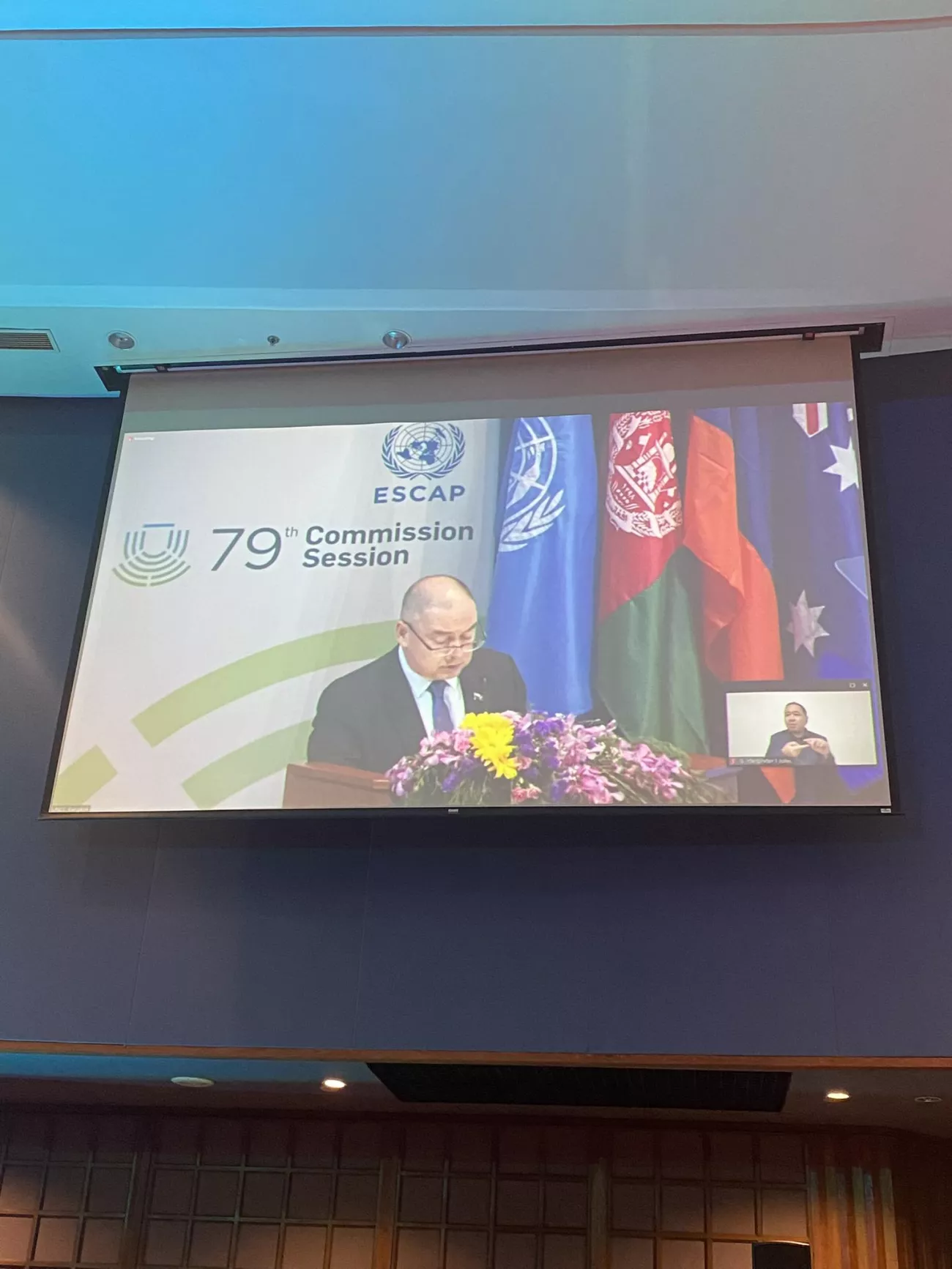
Honourable Ministers, PIF’s Secretary General,Distinguished guests, Excellencies. Friends.
Kia Orana, Bula and warm Pacific Greetings.
As you would have seen from the presentation, climate change related loss and damage is what happens when we can no longer keep up our adaptation efforts to deal with the impacts of climate change. In other words, loss and damage occurs when we have reached the absolute limits of adaptation. In essence, it is unavoidable climate change impacts.
Ladies and gentlemen, we know that according to the science, the real cause of climate change is Greenhouse gas emissions, and we must not loss sight of the need to accelerate climate action, especially on the mitigation front. To address loss and damage in the long term, we must address the root cause of the problem.
However, due to the human activities, loss and damage has already happened and is happening in our Pacific Island States. Our local communities are experiencing loss and damages that will take years to restore, if ever, even if we could get to net zero emissions by 2050.
In the meantime, we know that the UNFCCC-COP has established a Transitional Committee to look into establishing a Loss and Damage Financing Facility to address the issues highlighted by the previous speakers, but most importantly, a financing mechanism that can be easily accessible by Small Islands Developing States, and at scale to help us address and restore the damages done and the losses already suffered by the most vulnerable countries in the world, including in the Pacific.
It is disappointing to note that no one from the Pacific is on the Transitional Committee even though we had three opportunities to have a Pacific representative on the Committee. There was a seat for the Small Island Developing States, one for LDCs and one under the Asia-Pacific grouping. Not a single seat was allocated to a Pacific representative despite us submitting nominations at every opportunity.
Despite that, we know that loss and damage goes beyond environmental damages and includes slow-onset events that we may not realise, are slowly degrading until we have reached the tipping points, at which point it may be too late. We need to address the erosion of land and the homes of our coastal communities, the dying corals and lost traditional fishing grounds - a source of food and livelihoods for many in the Pacific, we need to stop forced relocations because people can no longer live in their existing community locations.
As we look for ways of mobilizing transformational financing to shift the dynamics between development and climate change, let us not forget that we have had the Green Climate Fund, The Adaptation Fund and numerous other mechanisms that have not lived up to our expectations. There must be better ways of delivering needed climate financing where we need it, when we need it.
We can learn from the numerous mechanisms that actually work for use. The development financing mechanisms like the Multilateral Development Banks can be replicated in the climate finance space, and particularly for financing loss and damage. We have an opportunity to shape what the new mechanism will look like while we are still in the process of establishing the new facility.
We must continue to take advantage of every opportunity to advance our call for new and additional financing to address loss and damage. That is why opportunities like this one are important. We thank the organisers and the UNESCAP Committee for providing us this platform.
Let us stop the politics associated with climate finance and channel funding to where it is needed most. I argue that given our special circumstances and our unique vulnerabilities, PSIDS have a genuine case for special consideration when it comes to financing loss and damage.
I thank you.
